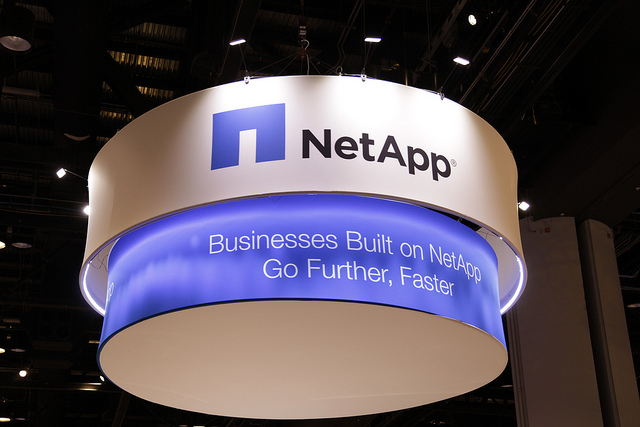 CLOUD
CLOUD
 CLOUD
CLOUD
 CLOUD
CLOUD
Data storage specialist NetApp Inc. today announced Project Astra, its vision of an enterprise-class storage and data services platform for Kubernetes that enables both application and data portability.
Kubernetes is an open-source project that’s used to orchestrate large clusters of software containers, which host the components of modern applications that can run on any kind of computing infrastructure. The technology has seen rapid adoption over the past few years, but NetApp argues that users lack the infrastructure needed to ensure application data is as portable as the applications themselves.
To meet the standards that CIOs expect, the company said, information technology teams and site reliability engineers need to find a way to handle data for stateless as well as stateful cloud-native applications with enterprise-class cloud storage and data services.
What NetApp is trying to address is an issue that’s plagued software containers since their inception. The problem, according to Moor Insights & Strategy analyst Steve McDowell, is that containers evolved in a world where persistent data wasn’t important to the workloads running within those containers. But nowadays there’s a much wider range of applications being deployed into containerized environments that do need persistent storage for data that must also conform to the rules of enterprise manageability.
“Most storage companies have addressed that need by writing drivers that conform to a specification called CSI, which defines a storage interface for containers,” McDowell said. “CSI allows us to intelligently connect storage to containers, but it really only gets us part of the way there. The bigger issue is data management. Container data, after all, is enterprise data, and should be treated as such. That’s precisely where NetApp is aiming with Project Astra.”
NetApp’s idea with Project Astra is to enable true, comprehensive portability for both Kubernetes applications and their data. The vision, the company added, is to allow companies to work seamlessly with their choice of Kubernetes distribution on any cloud.
McDowell said NetApp is well-placed to do this because it was one of the early proponents of data management for containers. The company bought StackPoint cloud back in 2018 and turned those assets into its NetApp Kubernetes Service. The service largely failed to get people’s attention, however, so NetApp eventually retired the offering to make way for Project Astra.
Project Astra is based on NetApp’s public cloud-hosted storage technology, which is enhanced through “Kubernetes-native” integration of data services with applications. The platform is still under development, but it will ultimately enable users to discover new applications with the Kubernetes setup of their choice, no matter if they’re hosted on-premises or in the cloud.
“Data management is lacking in the Kubernetes world, and Project Astra is NetApp’s opportunity to step up and take a leadership role,” McDowell said. “The company has both the expertise and the intellectual property to contribute to this effort, and it’s a good strategy. It couldn’t figure out how to make a business out of NKS, but it understands Kubernetes very well. Taking an open-source, partner-centric approach is a solid play into the space.”
However, McDowell stressed that NetApp isn’t announcing an actual product with Project Astra, not yet anyway. The project is more of a tentative effort to deliver data services for the Kubernetes community, which is something that’s desperately needed, the analyst said. But McDowell said it won’t be easy for NetApp, noting that the company hasn’t named any specific partners at this time, instead merely saying that it’s working with the “Kubernetes community.”
“Except in those rare cases where a company is actually open-sourcing an already developed project, it’s very unusual to see an open-source initiative announced that only includes a single player,” McDowell said. “We’ll have to carefully watch to see how this is embraced within the open source world.”
“We are making a decisive and long-term commitment to addressing the data challenges of Kubernetes, together with the communities and platforms that use it,” said Anthony Lye, senior vice president and general manager of NetApp’s Cloud Data Services business. “Project Astra will provide a software-defined architecture and set of tools that can plug into any Kubernetes distribution and management environment.”
NetApp said Project Astra is currently available as a technology preview, and it’s inviting interested developers to sign up for it here.
Support our open free content by sharing and engaging with our content and community.
Where Technology Leaders Connect, Share Intelligence & Create Opportunities
SiliconANGLE Media is a recognized leader in digital media innovation serving innovative audiences and brands, bringing together cutting-edge technology, influential content, strategic insights and real-time audience engagement. As the parent company of SiliconANGLE, theCUBE Network, theCUBE Research, CUBE365, theCUBE AI and theCUBE SuperStudios — such as those established in Silicon Valley and the New York Stock Exchange (NYSE) — SiliconANGLE Media operates at the intersection of media, technology, and AI. .
Founded by tech visionaries John Furrier and Dave Vellante, SiliconANGLE Media has built a powerful ecosystem of industry-leading digital media brands, with a reach of 15+ million elite tech professionals. The company’s new, proprietary theCUBE AI Video cloud is breaking ground in audience interaction, leveraging theCUBEai.com neural network to help technology companies make data-driven decisions and stay at the forefront of industry conversations.